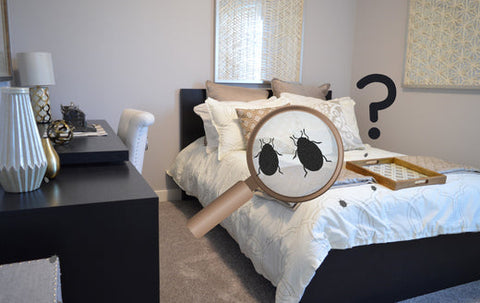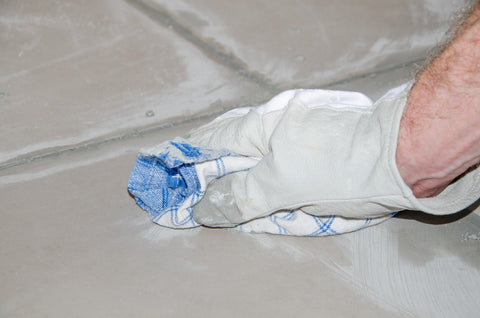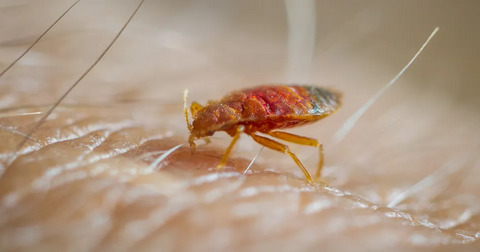Traveling opens up a world of adventure, new experiences, and occasionally, unwanted guests in the form of bed bugs. These tiny travelers can turn a dream vacation into a nightmare. Thankfully, with a few precautions and the right products, you can dramatically reduce the risk of an infestation.
Among the most effective tools in your bed-bug-preventing arsenal are bed bug travel sprays and bed bug killers. These specially formulated products can offer peace of mind, ensuring that the only memories you bring back from your travels are the good ones.
Understanding Bed Bugs
Their Nature and Habits
Bed bugs prefer human blood, but will bite animals if need be. They are reddish-brown in color and have flat, oval bodies when unfed, resembling apple seeds. Unlike fleas, bed bugs do not jump but are quick runners.
Bed bugs are resilient and can live for several months without a meal. They are primarily nocturnal and tend to hide during the day, usually in the cracks and crevices of walls, floors, and especially in or around beds and beddings.
Despite their name, bed bugs are not found only in beds; they can travel distances and can be found in other furniture, along baseboards, behind wallpaper, and in the folds of curtains.
How They Spread
These pests are adept hitchhikers and are frequently transported unwittingly by people in luggage, clothing, and furniture. They are not an indicator of poor hygiene, as they are just as likely to infest a clean home or hotel as a dirty one.
Hotels, hostels, and any multi-unit residence are particularly vulnerable to bed bug infestations because of the high traffic and proximity of travelers and their belongings.
Bed bugs primarily feed on the blood of humans but can also feed on other mammals and birds. They inject an anticoagulant and anesthetic through their saliva when they bite, making their feeding relatively painless, which contributes to their stealth.
Upon retreating to their hiding spots, they leave behind small, itchy bite marks in a clustered or linear pattern on the skin.
Risks and Impacts
- Health Risks: While bed bugs are not known to transmit diseases, their bites can lead to skin infections, allergic reactions, and significant psychological distress. The itchiness and discomfort from the bites can disrupt sleep and lead to insomnia.
- Economic Impact: Dealing with a bed bug infestation can be costly, involving professional extermination services, replacing infested furniture, and sometimes even medical treatment for severe allergic reactions to bites.
- Travel Disruption: Discovering bed bugs while traveling can lead to a rapid change in accommodation plans, possibly incurring additional costs and logistical challenges. It may also require immediate laundry services or the replacement of contaminated belongings to prevent spreading the infestation.
- Psychological Effects: Encountering bed bugs can cause anxiety, stress, and paranoia, particularly about sleeping or staying in new places. The fear of re-infestation can linger long after the initial problem is resolved.
- Reputational Damage: For businesses in the hospitality industry, a bed bug infestation can lead to negative reviews and a tarnished reputation, potentially resulting in a decrease in bookings and revenue.
Signs of Bed Bugs
Identifying signs of bed bugs early can help in preventing a full-blown infestation. Here are the key indicators to watch out for:
- Unexplained Bites: Waking up with itchy bite marks in a line or small clusters, typically on exposed skin.
- Blood Stains: Small blood smears on sheets or pillowcases, often a result of crushing an engorged bed bug in your sleep.
- Dark or Rusty Spots: Tiny fecal spots from bed bugs can appear on bedding, mattresses, and nearby walls or furniture.
- Eggs and Eggshells: Tiny (about 1mm) pale yellow skins that nymphs shed as they grow larger.
- Live Bugs: Spotting the actual bed bugs, especially within seams of mattresses, box springs, bed frames, and hidden areas around the bed.
- Musty Odor: A strong, unpleasant, musty scent from the bed bugs' scent glands may be noticeable in severe infestations.
Avoiding Bed Bugs
To effectively prevent and control bed bug infestations while traveling, consider incorporating these products into your routine:
- Bed Bug Laundry Detergent: Utilize a specialized laundry detergent designed to kill bed bugs and their eggs in your clothes. This is particularly crucial after a trip, as it ensures that any bed bugs that might have hitched a ride on your garments are eliminated before they can infest your home.
- Bed Bug Spray Killer: Keep a bed bug spray killer handy, especially one that's travel-sized, to treat your luggage, hotel beds, and any surfaces that might harbor these pests. Spraying your suitcase before and after your trip can act as a preventative measure against bringing bed bugs home with you.
- Non-toxic Bed Bug Killer: For a chemical-free option, look for non-toxic bed bug killers that use essential oils or other non-toxic ingredients. These products are safe to use around children and pets, making them a great choice for families concerned about using pesticides.
What to Do if You Encounter Bed Bugs
Discovering bed bugs in your hotel room or home can be unsettling, but taking swift and effective action is key to managing the situation. Here's what you should do if you encounter bed bugs:
- Isolate Your Belongings: Immediately place your clothes and luggage in plastic bags to prevent bed bugs from spreading to other areas.
- Notify Management: If you're staying at a hotel, hostel, or rental, inform the management right away. They should offer you a new room (far away from the infested one) or address the issue promptly.
- Inspect New Accommodations: Before settling into a new room or moving your belongings into another area, thoroughly inspect the space for signs of bed bugs.
- Wash Clothing in Hot Water: Wash all potentially affected clothing and fabrics in hot water, ideally above 60°C (140°F), to kill any bed bugs or eggs.
- Vacuum Your Luggage: Use a vacuum cleaner with a hose to thoroughly clean your suitcase and other travel items. Dispose of the vacuum bag or clean the vacuum canister outside immediately after.
- Monitor for Signs: Continue to monitor your sleeping area and luggage for signs of bed bugs in the weeks following exposure.
Conclusion: Staying Vigilant
Unfortunately, there's no foolproof method to ensure you'll never encounter bed bugs during your travels. But by being informed and vigilant, you can significantly reduce the risk of an infestation affecting you.
Remember to check your environment, manage your luggage smartly, and act quickly with the right steps if you do encounter these pests. Happy travels, and here's to smooth-sailing trips without any tiny hitchhiking companions.
About HygeaNatural
At Hygea Natural, our core mission is to enable individuals, businesses, and communities to adopt a more sustainable, safer, and healthier lifestyle through our range of non-toxic cleaning products. Recognizing the varied backgrounds and needs of our clientele, we proudly offer an extensive selection of both professional-grade and do-it-yourself cleaning solutions.
This variety ensures that regardless of whether you're a professional cleaner needing effective and safe products for your clients, or a parent looking for eco-friendly options for your home, Hygea Natural has something to suit your specific requirements.
For more information or to explore our full range of non-toxic cleaning products, do not hesitate to get in touch with our knowledgeable and friendly team.
Call Us: 315 660 3500
Email Us: info@hygeanatural.com
Your health, safety, and satisfaction are our top priorities. We look forward to assisting you in creating a cleaner, healthier living environment.




